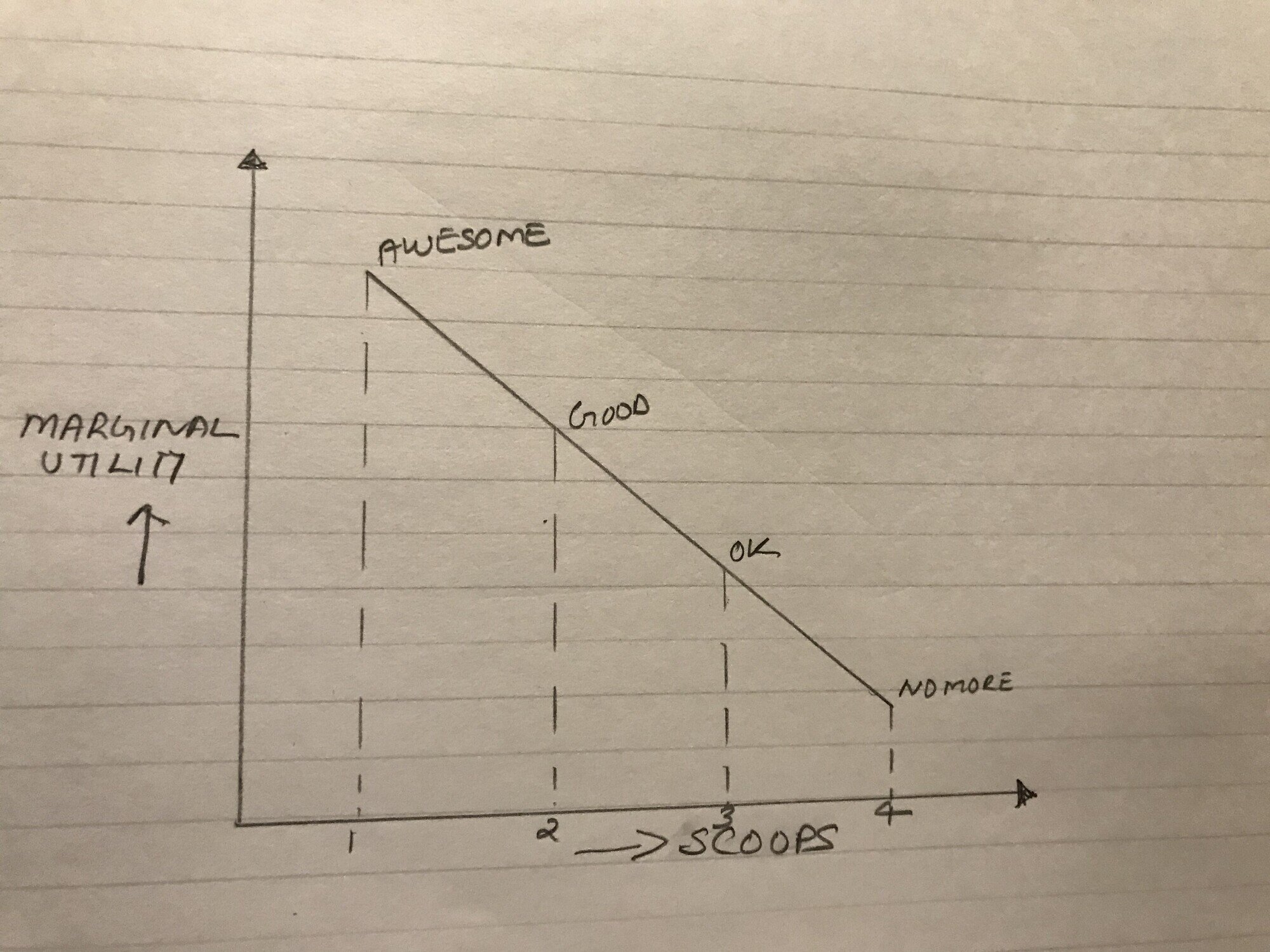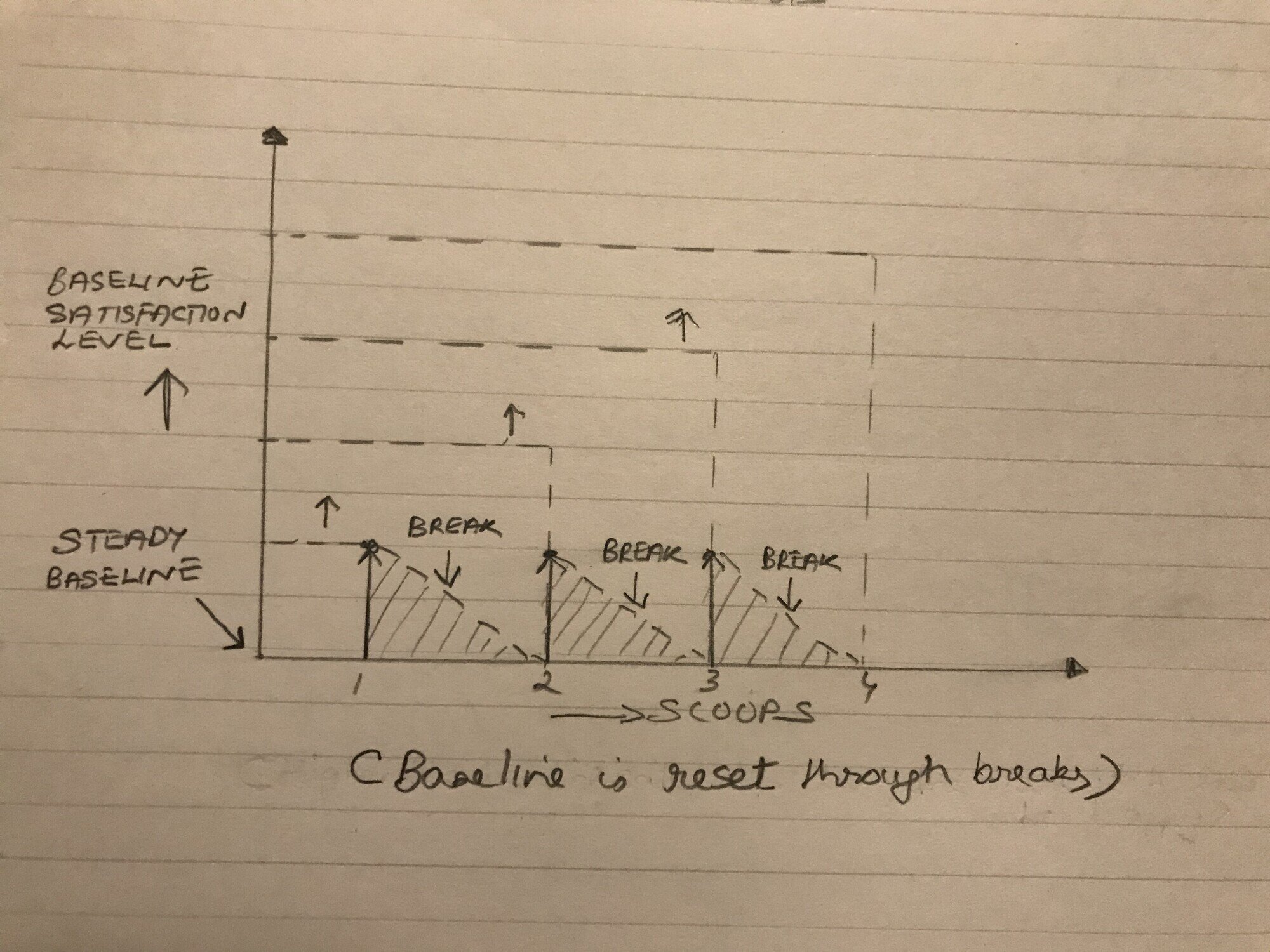The Joy of Taking A Break From Joy
What would happen if you engage in pleasurable activity unabated? Would your level of joy keep increasing forever or even remain steady? It turns out that our minds are pretty sneaky and do not behave intuitively. A concept from economics and another from psychology could help explain this. In economics, the law of diminishing marginal utility says that as we consume additional units of a product, the additional utility that we derive is lower than that from the previous units. For example, let’s say that you buy your favorite ice cream. The first scoop of that ice cream gives you a very high level of satisfaction as you relish the ice cream. Now, you give in to temptation and buy one more right after. You may still enjoy this second scoop but not as much as the previous time. What if you order a third one? You may still appreciate the sweetness of the ice cream but you are not enjoying it as much as you would love to. This is the law of diminishing marginal utility at play as shown in the figure below.
In psychology, this is explained through the concept of hedonic adaptation. Hedonic adaptation is the process through which our minds get used to positive or negative events. Stated simply, our minds are wired to get used to stuff. So, once we have enjoyed the first scoop of the ice cream, our mind slowly adapts to it. This increases our baseline level of satisfaction i.e. the level that needs to be crossed for us to enjoy the ice cream further. So, the next scoop fails to feel as great as the previous time. Over time, our baseline level of satisfaction increases so that it takes something more special in the ice cream for us to enjoy it as much as we did before. This is depicted in the figure below.
Let’s take another example. You watch an episode of your favorite TV show on a Saturday afternoon. At the end of the first episode, you are so intrigued that you decide to watch the next episode. Before you realize it, you have binge-watched 10 episodes, consumed 4 buckets of popcorn, and guzzled down half a gallon of soda. You realize that although the series insidiously hooked you on to one episode after the next, the last few episodes did not feel as pleasurable as the first ones. This is hedonic adaptation and the law of diminishing marginal utility at play. In the paper The Half-Life of Happiness, the authors found that even when the extremely poor population were provided with better housing, the subjective well-being gained in the first sixteen months lost 60% of its value in the next 8 months. The participants got habituated to the new housing and hence it did not feel all that great after a while.
So, what does it mean? How can we break the effect of the hedonic treadmill? Are we hostage to the tricks of the mind? Can you eat half of that ice cream and enjoy the same pleasure at half the calories? Can you watch just a couple of episodes of your favorite series and get the same level of pleasure at one-tenth of the time spent? Yes, you can.
Studies have shown that interrupting consumption can help us break the hedonic adaptation cycle. Let’s take the example of the ice cream. As shown in the figure below, if you space out your consumption by taking breaks, your baseline satisfaction level is reset and you can then enjoy every scoop of the ice cream with the same level of satisfaction as the one before. For example, instead of eating 3 scoops in immediate succession, you could have just one scoop each day. Similarly, instead of binge-watching ten episodes of the series, you can just watch one episode each day. This interruption will give enough time for your brain to reset its baseline satisfaction level and help enhance your enjoyment of each successive episode.
So, there you go. Mix your pleasurable consumption with something that is challenging or even a mundane chore. The bookshelf you that is awaiting some reorganization for the past couple of months? It could help break your hedonic adaptation. That dreaded presentation that you have to complete before Friday? It could actually help enhance your enjoyment of the next episode of your favorite series - not to mention that it will be one less thing on your todo list for this week!




